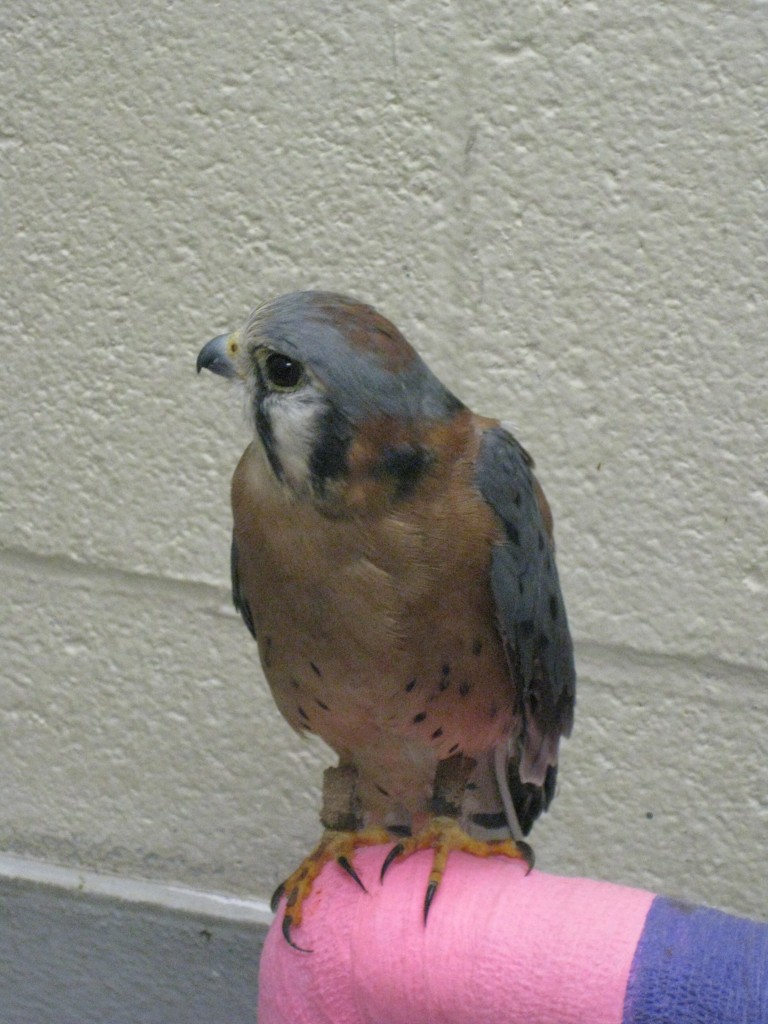Many pre-vet college students will often look for unique opportunities to enhance their education and get them ready for their days studying in veterinary school.
Washington State University provides one such experience through the school’s Raptor club, which is available for University of Idaho students as well. Founded in 1981 as an interest group, its volunteers help to take care of some of the veterinary teaching hospital’s educational birds which include owls, eagles and hawks.

Aly Soto | Rawr
Pre-veterinary students at WSU gain hands-on experience with raptors.
Unlike the birds normally found in a pet store, these wild birds require slightly different care during their stay at WSU. Audrey Jimenez, a club member, said looking after the birds is a challenge as the birds must get acquainted with being looked after by humans.

“You are caring for what was originally a wild animal, not somebody’s pet,” Jimenez said. “In terms of care, you are working with an animal that wouldn’t normally interact with people.”
Learning to be a care-taker takes time and training. Volunteers have to clean cages, feed the raptors according to their strict diet, handle them for educational presentations and recognize the meanings behind certain behaviors. While making sure their health is not in jeopardy while under their care, members also aim to make sure the birds stay as wild as possible.
“It’s pretty incredible as you get to interact with these amazing species that you wouldn’t get very close to in regular life, ever,” Jimenez said.
The club, she said, also provides a good chance to work on public communication skills for those who are crowd shy. During a presentation, the volunteers educate the audience about raptors while handling the birds themselves.
“It’s a good way to learn because most of the attention is not on you, it’s on the bird,” Jimenez said.
Caring for their current raptors eventually becomes a sort of habit, though there are some unique challenges that members have encountered such as picky eaters and highly excitable birds. Other challenges are more serious when the raptor in care suffers from a particular injury or is a fledgling.
“Our biggest challenge when we get fledglings is imprinting,” Jimenez said.
Even if a fledgling has fully recovered and is able to be released back into the wild, they cannot do so if they have imprinted on its human caretakers. This means those birds look to their caretakers as parents.
“They no longer understand that we are not them and they are not us. They don’t have a natural fear of people anymore and that makes them impossible to leave us,” Jimenez said.
Another condition that prevents the raptors from leaving is if their injury, even if they have recovered, prevents them from performing natural habits such as hunting and defending themselves. Most of the injuries Jimenez has encountered in her time as a volunteer are accidental and unavoidable, such as nests getting knocked off or getting hit by a car. Other injuries — like getting hit by a pellet gun or lead poisoning — are due to human negligence and cruelty, something the club tries to educate the public about, she said.
Despite the way they have entered into the care of the raptor club, the birds are receiving professional care and attention. The volunteers, the hospital staff and the veterinary doctors are dedicated to making sure that each bird is healthy and comfortable. Charlie, a now deceased red-tailed hawk, is probably the club’s best example of this. Not only is he the club’s first resident, he is also the oldest red-tailed hawk in recorded history. He died in his 30s.
The club has recently started a shadowbox project to remember the birds they have lost.
“It’s hard for everyone, when we lose a bird,” Jimenez said. “They are with us for so long and their care is a big part of our day.”
If one does come across an injured raptor, whether in their own backyard or in the wild, Jimenez recommends assessing the injuries of the bird from a distance for safety purposes.
“Something we like to tell the public when we have our great horn out on glove is that he has the capacity to crush with about 300 PSI in his talons. Our arms only take about 100 PSI to break,” Jimenez said.
If it looks like the bird is in need of medical attention, bring it directly to a veterinarian or find someone experienced with raptors to do so. Jimenez said it is best to not try to treat the bird without assistance as this will not only further injure it but is also illegal without a specialized permit.
As for seeing these birds in their natural habitat?
“Just don’t interact with them.” Jimenez said sternly. “Enjoy them from afar.”
Anyone, Idaho students included, can join the club if they are interested. The only qualification is being 18 years old or older. Send an email [email protected] for more information.
Aly Soto can be reached at [email protected]